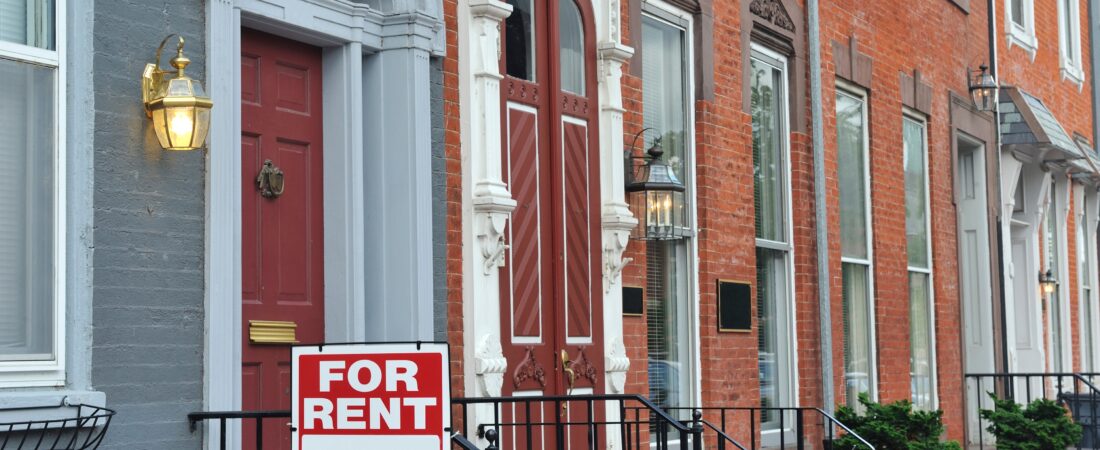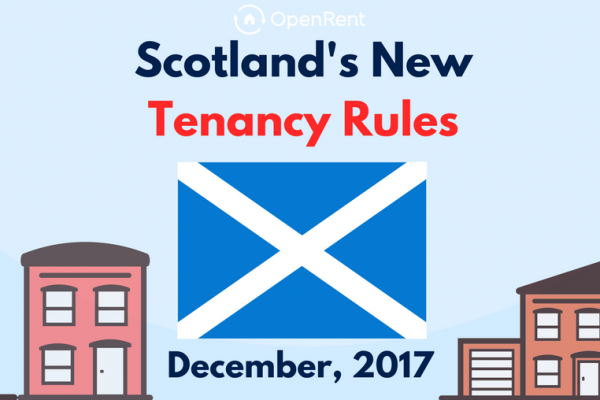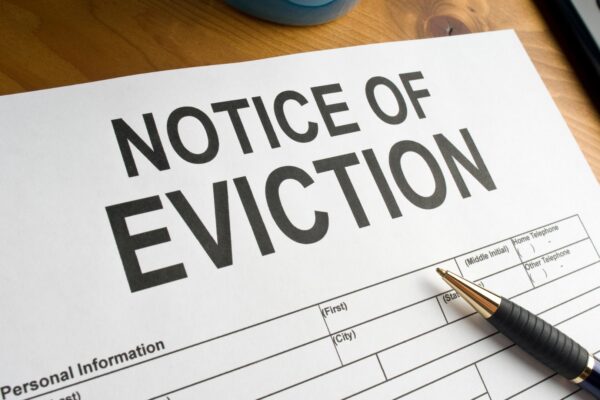The Renters’ Rights Bill is set to bring the biggest changes to the private rented sector since the Housing Act 1988.
It was first put before Parliament on 11th September 2024 and is likely to pass into law in the next few months. These changes will affect both landlords and tenants, so it’s important to know what’s coming and how it could impact the way you rent out your properties.
For landlords, the Renters’ Rights Bill will mean some new rules to follow, but there are also opportunities if you plan ahead.
In this blog, we’ll explain the main points landlords need to know – including the end of Section 21 ‘no-fault’ evictions, limits on how often and by how much rent can be increased, and all tenancies switching to periodic agreements.
- What is the Renters’ Rights Bill?
- The bill’s key proposals in detail
- When will the Renters’ Rights Bill become law?
New laws, no worries. Use Rent Now to draft tenancy agreements that meet all the latest legal requirements. Start Your Tenancy
What is the Renters’ Rights Bill?
The Renters’ Rights Bill is a new law on its way that’s set to make major changes to how renting works in the private rented sector. Its main aim is to give tenants more certainty about staying in their homes and more options if they’re living in poor conditions.
The government states this is needed because, although most landlords do a good job, private renting is seen as the least affordable, least secure, and lowest quality type of housing.
Here’s a quick breakdown of what the Renters’ Rights Bill is bringing in (you can find more details later on):
- Abolishing Section 21 evictions: You’ll no longer be able to evict tenants without giving a reason – often called “no-fault” evictions.
- End of fixed-term assured shorthold tenancies (ASTs): All tenancies will now be periodic from the start, rolling from month to month, rather than having a fixed end date.
- Limits on rent increases: Landlords will only be able to raise the rent once a year, using a Section 13 notice.
- Wider Section 8 grounds for possession: Since Section 21 is going, new and updated mandatory and discretionary grounds will be added under Section 8 for landlords seeking to regain possession of their properties.
- Ban on rental bidding wars: Landlords and letting agents won’t be allowed to accept higher offers from tenants than the price listed in the advert.
- New landlord ombudsman service: If there’s a dispute between a landlord and a tenant, this service will step in to help resolve the situation fairly.
- PRS property and landlord database: The government will set up a register to keep track of landlords and rental properties, making it clearer who is following the rules.
- Ban on blanket bans: Landlords won’t be allowed to turn away tenants just because they’re on benefits or have children.
- Decent Homes Standard applied to rentals: All rental properties will need to meet minimum quality and safety standards.
- Allowing pets in rentals: Landlords won’t be able to say no to tenants with pets without a valid reason.
These changes mean there’ll be new responsibilities to keep in mind as a landlord, but understanding them early will help you stay compliant and keep things running smoothly.
You might also be interested in…
- DIY Landlord: How to Rent Out Your Property Without an Agent
- What is Subletting and is It Illegal in the UK?
- What the New Decent Homes Standard Means for the Private Rented Sector
- Tenant Fees Act 2019: Banned Tenant Fees and Payments for Landlords
- Has the Renters Reform Bill 2024 Been Passed?
Renters’ Rights Bill vs Renters (Reform) Bill: What’s the difference?
You might be wondering why there are two different names floating around – the Renters (Reform) Bill and the Renters’ Rights Bill. The confusion is understandable, as both aim to overhaul how renting works in the private sector. But here’s the key difference:
The Renters (Reform) Bill was introduced by the previous Conservative government. However, it was scrapped at the last minute, as it didn’t pass during the wash-up period before the 2024 general election. In other words, it ran out of time and never became law.
The Renters’ Rights Bill is a separate piece of legislation put forward by the new Labour government, carrying over many of the same ideas but also adding some extra measures.
Here’s a simple side-by-side look at how they compare:
| Proposed changes | Renters (Reform) Bill | Renters’ Rights Bill |
|---|---|---|
| End Section 21 evictions (no-fault evictions) | ✅ With court reform | ✅ Without court reform |
| Expand grounds for possession under Section 8 | ✅ | ✅ |
| Limit rent increases to once per year | ✅ | ✅ |
| Ban rental bidding wars (offering over the asking price) | ❌ | ✅ | Allow tenants to have pets | ✅ | ✅ |
| Ban discrimination against tenants on benefits or with children | ✅ | ✅ |
| Apply Decent Homes Standard | ✅ | ✅ Plus Awaab’s Law |
| Set up a landlord ombudsman service | ✅ | ✅ |
| Create a private rented sector (PRS) database | ✅ | ✅ |
| Strengthen enforcement for non-compliance | ✅ | ✅ |
Like with any new law that impacts landlords and tenants, OpenRent is keeping a close eye on every development.
Our legal and product teams are carefully reviewing the Renters’ Rights Bill and will carry on doing so to ensure both our platform and your tenancies are fully prepared from day one.
The bill’s key proposals in detail
We’ve highlighted seven key changes that the bill proposes for the private rented sector. These are important updates that could have an impact on how things work for both landlords and tenants.
1. The abolition of Section 21 evictions
One of the key promises of the bill is to abolish Section 21 evictions, often referred to as ‘no-fault’ evictions, which currently allow landlords to end a tenancy without providing a reason.
Under the earlier Renters (Reform) Bill, the end of Section 21 was tied to improvements in the court system. However, the Renters’ Rights Bill takes a different approach.
Labour’s bill seeks to abolish Section 21 for both new and existing tenancies on the same day, referred to as the ‘commencement date’.
The government believes this approach will avoid creating a confusing two-tier system and will “give all tenants security” immediately.
It’s expected that landlords will be able to serve valid Section 21 notices up until the working day before the commencement date (which is still unknown).
For now, Section 21 notices remain in place, and you can still issue one if needed, using our free tool.
2. New and amended Section 8 grounds for possession
With the end of Section 21, landlords will need to rely on Section 8 if they want to regain possession of their properties. Unlike Section 21, a Section 8 notice requires landlords to provide a reason for seeking possession.
To cover the full range of situations where a landlord might need to reclaim their property, the Renters’ Rights Bill proposes updating some of the existing grounds for possession and introducing new ones.
One of the new grounds includes a mandatory ground where the landlord “intends to sell” the property. Another is where the tenancy must end because it would be unlawful to continue due to enforcement action against the landlord.
Once the Renters’ Rights Bill is finalised, we’ll provide a complete list of the new and updated grounds along with their required notice periods.
In the meantime, you can read more about how to serve a Section 21 notice correctly or find out how the Section 8 process works currently.
3. The end of fixed-term tenancies
The bill proposes that all assured shorthold tenancies transition to periodic agreements from the commencement date, with rent periods capped at one month. Additionally, there will be no minimum tenancy term for either new or existing agreements.
Tenants will gain the right to end their tenancy at any time by providing two months’ notice, using any written method.
The bill also states that landlords must not request or accept rent payments from tenants, guarantors, or anyone acting on their behalf until the tenancy agreement is signed by both parties.
Landlords will also be banned from inviting applicants to offer higher rent or accepting rent payments above the advertised amount, which must be clearly stated in writing. Breaching these rules could result in fines of up to £7,000.
After the agreement is signed, landlords can request and accept up to one calendar month’s rent in advance. This has raised concerns, particularly among landlords and tenants involved in student lettings, where paying rent in advance is a common practice.
Save time and money by reaching the right tenants without the hassle of hidden costs. Upload Your Listing Today
4. New rules for rent increases
Landlords will only be able to increase rent once per year, using the formal Section 13 process. This means serving tenants with Form 4, which must be downloaded from the government website, and giving at least two months’ notice (double the current requirement).
Any existing rent review clauses in tenancy agreements will no longer be valid. Tenants will also gain the right to challenge the proposed rent at the First-tier Tribunal, free of charge.
If the tribunal finds that the rent exceeds market value, it can reduce the amount or delay the increase by up to two additional months in cases of undue hardship.
Because of this process and potential backlogs at the First-tier Tribunal, it could take up to six months from the date of notice before a rent increase actually takes effect.
5. The end of blanket bans
Landlords will no longer be allowed to impose blanket bans on renting to people who receive benefits or have children. This change will apply across England, Scotland, and Wales.
The bill also appears to extend this ban to lease agreements, mortgages, and insurance contracts, meaning that any clauses in these documents that try to prevent renting to people based on benefits or children could be considered invalid.
However, landlords can still consider affordability when assessing applicants. This means they can take an applicant’s income into account to determine whether they are financially able to pay the rent.
6. New right for tenants to seek consent for pets
Tenants will have the right to request their landlord’s consent to keep a pet, and landlords will only be able to refuse if they have a valid reason – such as a restriction in their superior lease.
For more details on how the Renters’ Rights Bill proposes to change tenants’ rights regarding pets in rental properties, take a look at our guide here.
7. Private rented sector ombudsman and database
All private landlords in England with assured tenancies will be required by law to join a new private sector ombudsman, even if they use a letting agent that is already part of a redress scheme.
The ombudsman service will be free for prospective, current, and former tenants to access. It offers an alternative to making complaints to the council or taking legal action through the courts.
The bill also proposes granting the first-tier tribunal the authority to issue rent repayment orders for “continuing or repeat breaches” of the ombudsman’s rulings. Landlords will be legally required to comply with the ombudsman’s decisions, and failure to do so could lead to enforcement action by the council.
In addition to the ombudsman scheme, landlords will need to register themselves and their properties on a private rented sector database.
Failure to register and provide the necessary details before advertising or letting a property could result in civil penalties. More importantly, landlords who fail to register will not be able to obtain possession orders, with some exceptions.
Landlords will need to pay a fee to join the database, but the government has said it will make sure the fee is reasonable and offers good value.
Don’t leave your property to chance; ensure it’s protected against life’s surprises. Find Out More
8. Extension of Awaab’s Law to the private rented sector
Awaab’s Law was introduced in response to the tragic death of Awaab Ishak in 2020, caused by mould inhalation in his social housing flat. The law places a duty on social housing providers to address hazards within a set timeframe.
The Renters’ Rights Bill proposes extending Awaab’s Law to the private rented sector, but as of now, it hasn’t clarified how this will apply to private landlords.
It’s important to note that Awaab’s Law hasn’t yet been implemented in the social housing sector either. At the time the 2024 general election was called, the details were still under consultation.
Private landlords may soon face greater responsibilities to ensure their properties meet a reformed Decent Homes Standard and are free from serious hazards. A new consultation on the proposed changes was launched on 2nd July 2025.
As part of the plan, the government has suggested that landlords who don’t fix serious hazards may face fines of up to £7,000.
When will the Renters’ Rights Bill become law?
The bill is about to enter the Third Reading stage in the House of Lords, scheduled for 21st July 2025.
With Parliament due to break for summer recess at the end of July, there’s a narrow window for the bill to receive Royal Assent. It could either be pushed through before the recess or delayed until autumn.
We’ve seen previous governments fast-track legislation at the last minute, like the Leasehold and Freehold Reform Act – so a quick approval is possible, but further delays remain more likely. Once it receives Royal Assent, it will become known as the Renters’ Rights Act.
When will implementation begin?
Overall, the bill is moving through Parliament slower than expected. Early predictions expected it to become law by mid-2025, but at this rate, it’s looking more likely to come in towards the end of the year – or even slip into 2026.
Delays like this aren’t unusual, especially with the back-and-forth of discussions, amendments, and political wrangling slowing things down.
We’ll keep this article updated with the latest news as the bill progresses through Parliament. For now, the current rules still stand, and it’s likely to be several months before implementation begins.




Does that include Awabs Law and the Decent Homes Standard?
Hi David,
These are proposed policies that have not yet come into effect – and may never do so.
Should these policies come into effect for the private rented sector, our tenancy agreements will be promptly updated to adhere to the new rules and regulations.
My point was really that those two things, (if they become law) are more a factor of ongoing management than tenancy creation. Telling Rent Now users that they neednt worry about any regulatory changes in the bill could be misleading.
One important thing this Bill means for landlords is that they must learn to be sensible. For instance: On another blog, I came upon a case where the landlord, having upped his tenant’s rent by £700 a month, displayed his own mortgage-payment cost as justification. Eh? What makes this fool landlord imagine that his tenant must pay his mortgage costs, or be evicted?
I agree in principle that rents are set by the market, not by the individual circumstances of landlords. However, its likely that this landlord was faced with a choice of evict and sell up asap or increase the rent to cover costs that he could not cover any other way. £700 is a massive monthly increase, so I can only assume that the tenant was previously benefitting from an unsustainably low rent.
As to whether the rent should “pay his mortgage”, the answer is that any business that operates from premises theyve bought must set their pricing to cover all their business costs including any borrowing. Whilst larger businesses, like Tesco can absorb sudden large increases by increasing their prices incrementally over time, smaller businesses cannot and if no-one is willing to buy at the price they set, they fold.